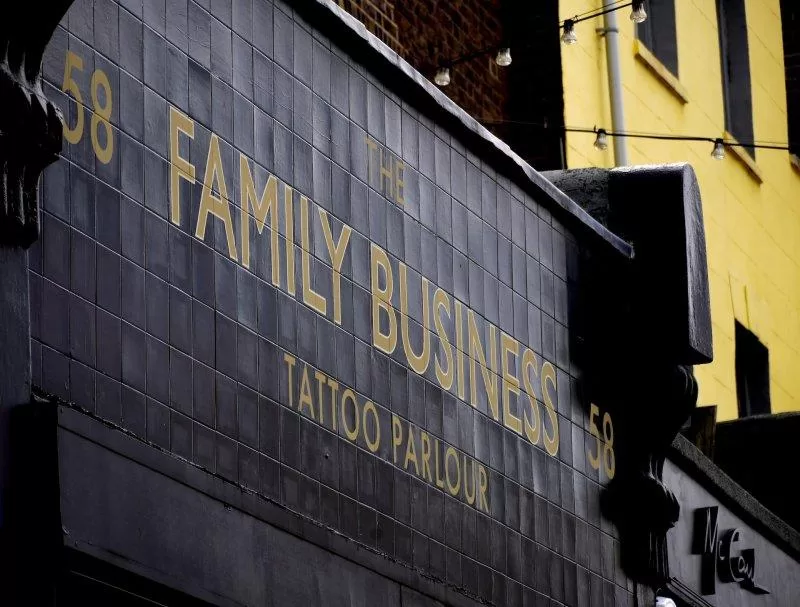The short answer: because it makes your business visibility and appeal skyrocket. Branding is an essential step in business strategies at any level, but family-centric branding is a special category. Let’s take a closer look at how family-owned businesses benefit from good branding.
Quick Links
Community relevance
One distinct advantage of family-owned businesses is that there is a distinct bond to the area which makes them stand out from chain stores and other “faceless” competition. Good branding will lean into that bond. This shows in the business name, brand story, and customer experience.
First, a family-owned business should make its status obvious in its name. Many family ventures are named after the family themselves. Other options include local-specific jargon, puns, references to endemic flora or fauna, names based on local landmarks, etc.
Next, the brand story of a family-owned business emphasizes the heritage they share with their customer base. This can refer to ethnic roots, culture, values, traditions, knowledge etc. Finally, the customer experience provided by a family-owned business blends the above two points.
Family members should lean into their neighborly personas. The business itself (store, merchandise, and service) should be styled in a distinct way with lots of personality. All this makes the business stand out in its community while still being closely connected.
Reputation for reliability
Customers want to know that the business will be there for them in terms of quality, and will stay in operation for as long as they need it. A family-owned business automatically suggests this dependability because it’s assumed to be passed down between generations.
A well-conceived branding strategy can solidify that idea in people’s minds. Make a point of emphasizing continuity. You can do that via slogans (e.g. “Run by So-and-So Family for X Generations”), business name (e.g. “So-and-So and Sons”), or suffixes of time (e.g. “Established by So-and-So Family in [Year]”).
Generational expertise
Stemming from the previous point, lean as far as you can into the heritage aspect of your business. Utilize old family tales, documents, memories of your living elders, or even probate genealogy research to establish your family tree and its story. The more detailed your big picture, the more fleshed out your branding strategy.
It has practical operational merits as well. When the young and old are in business at the same time, you get a unique perspective in all aspects. There’s an invaluable balance between experience, proven methods, innovation, and adaptability.
In the eyes of your customers, an intergenerational business is well-suited to their own families. They will see you as a company that understands the needs of parents, the wants of children, and the caprices of nostalgic elders and moody teens.
https://www.pexels.com/photo/selective-focus-photography-of-air-jordan-1-1032109/
Increased credibility
Good branding can also offset the inherent downsides of the family-owned business format. When you tout family as your primary value, it might cast doubt on professional merit. Your business has to demonstrate both to customers and potential employees that family membership doesn’t trump skill and expertise.
Strategic branding can lend the professional tone and image that outside stakeholders find reassuring. The familial aspect of the business should complement its credibility, rather than overshadow it. Combine the family brand with external objectivity.
Ensured continuance
On a final note, it’s important to distinguish between the people and the business. The family are the voice and vision behind the brand. The business itself is an entity of its own. It can be tempting to intertwine them, but long-term that strategy backfires.
The trap lies in generational shifts. People will inevitably retire at some point and let the young folks take the reins. If customers develop loyalty to a person rather than a brand, they will go away once that person stops working. For a family-owned business, which is by definition small and local, that could be a devastating blow.
To sum up, branding is a powerful tool for family-owned businesses. It amplifies the strengths of community, personality, local relevance, and continuity. At the same time, it offsets the potential lack of professionalism. It also establishes boundaries between the people and the business, helping to navigate intergenerational transitions.

